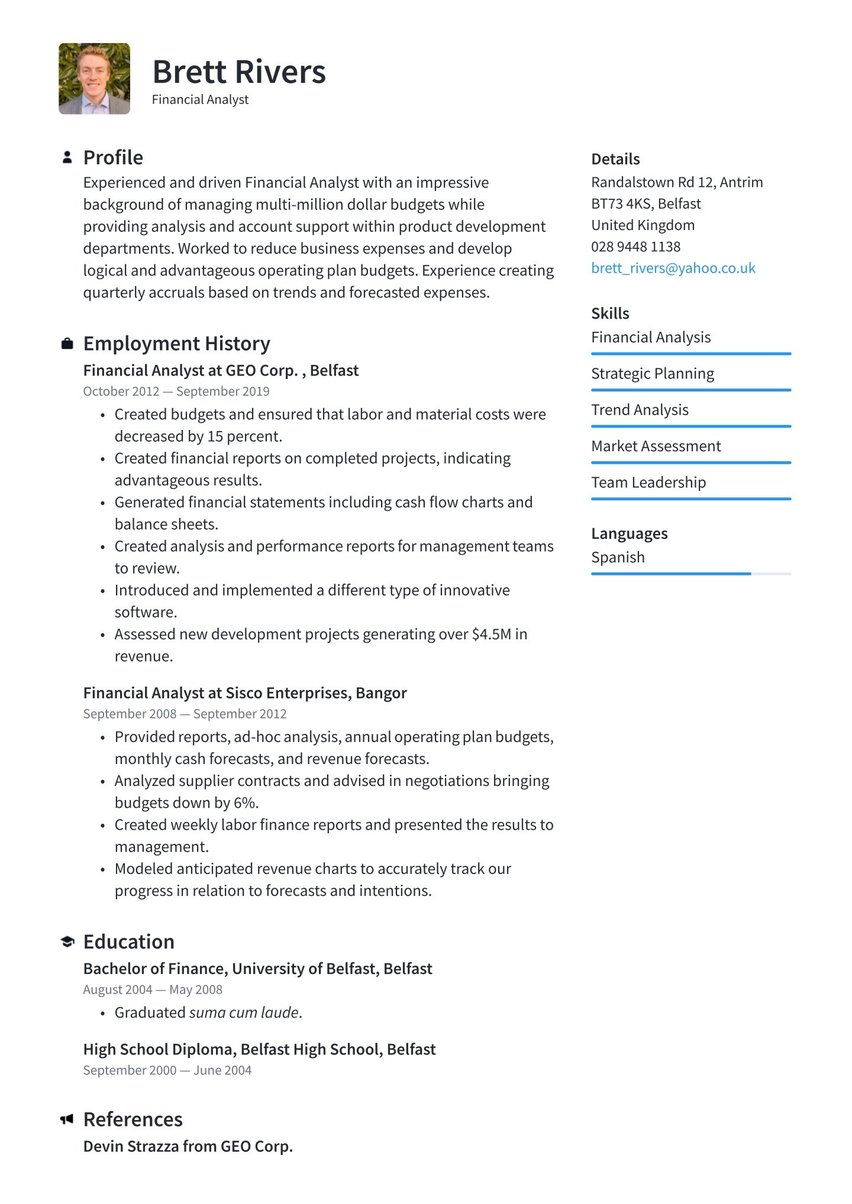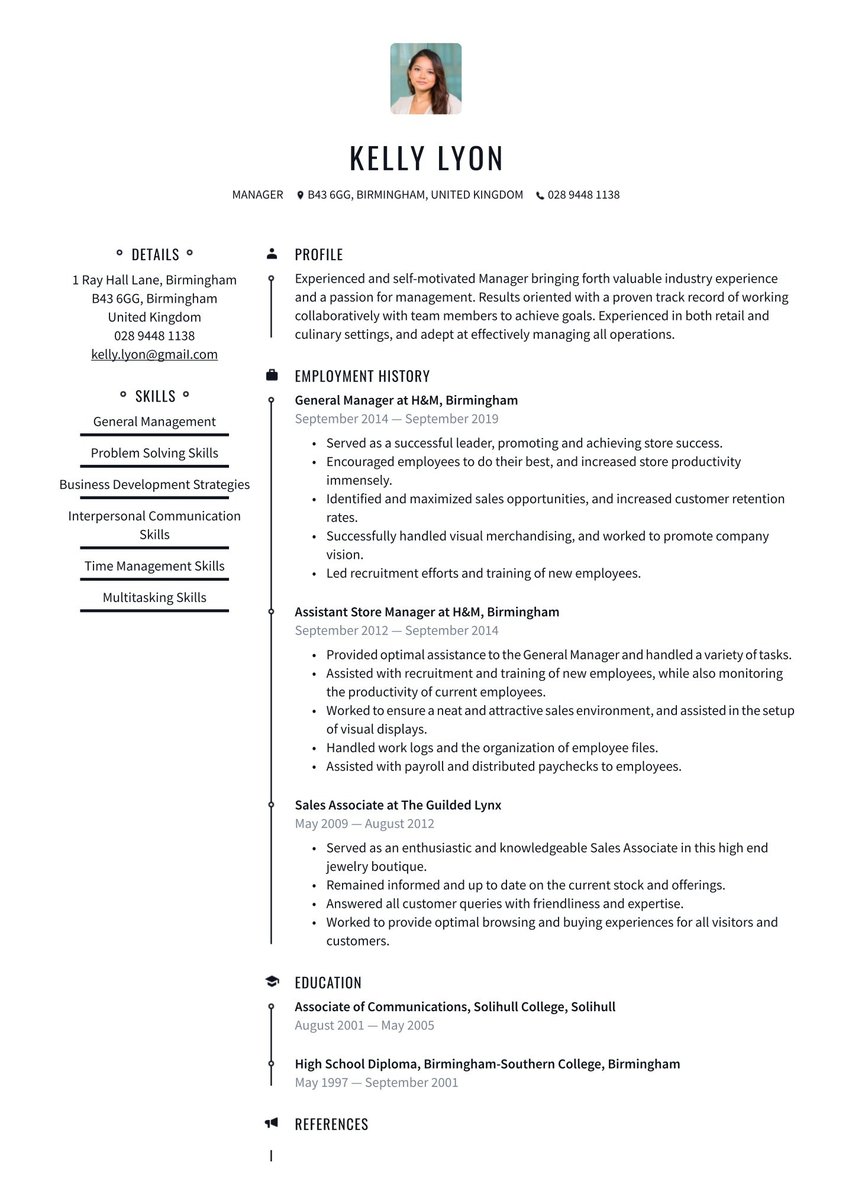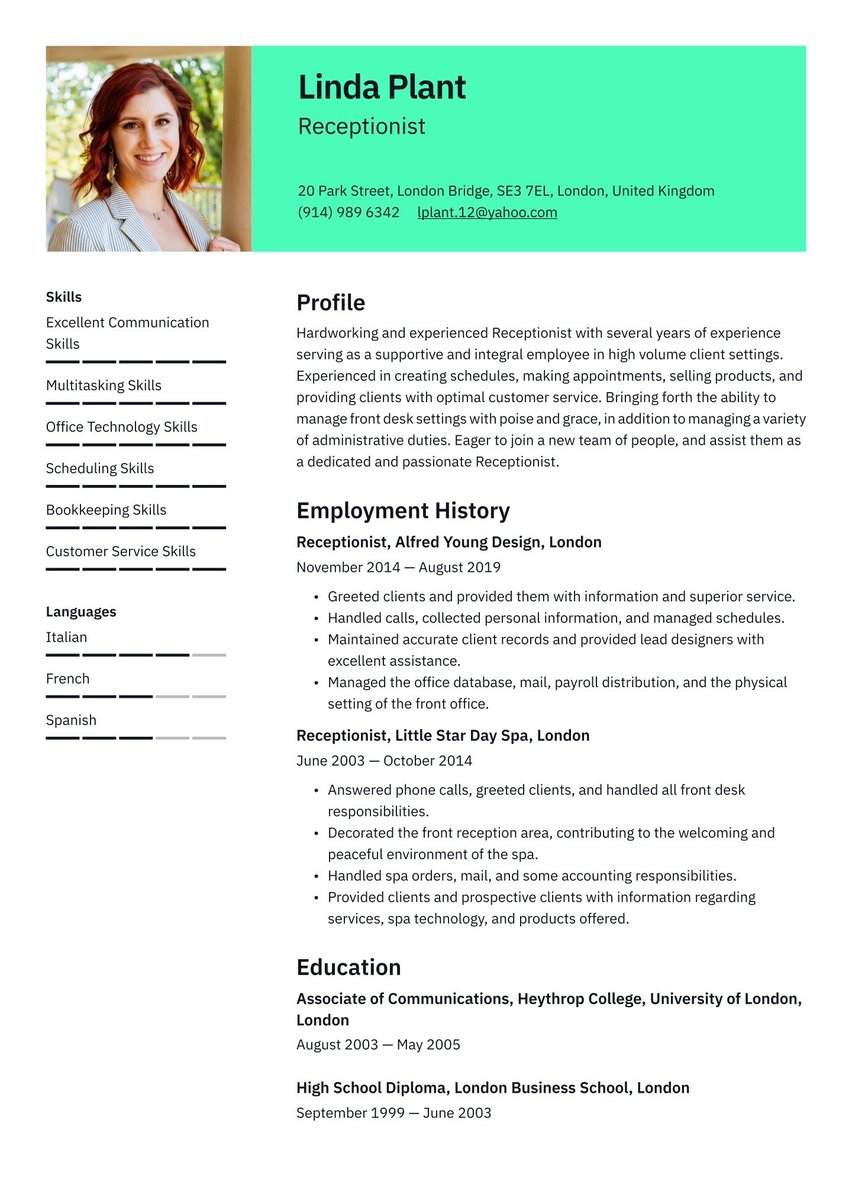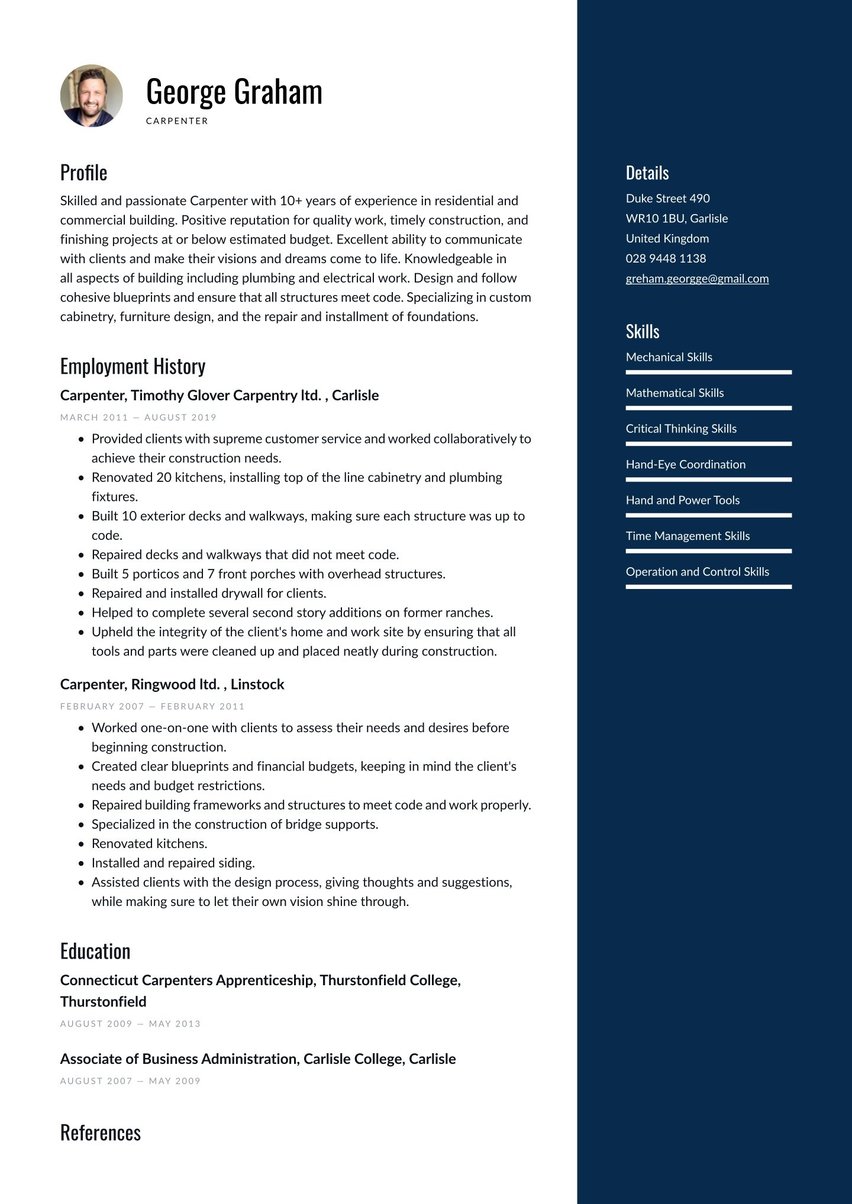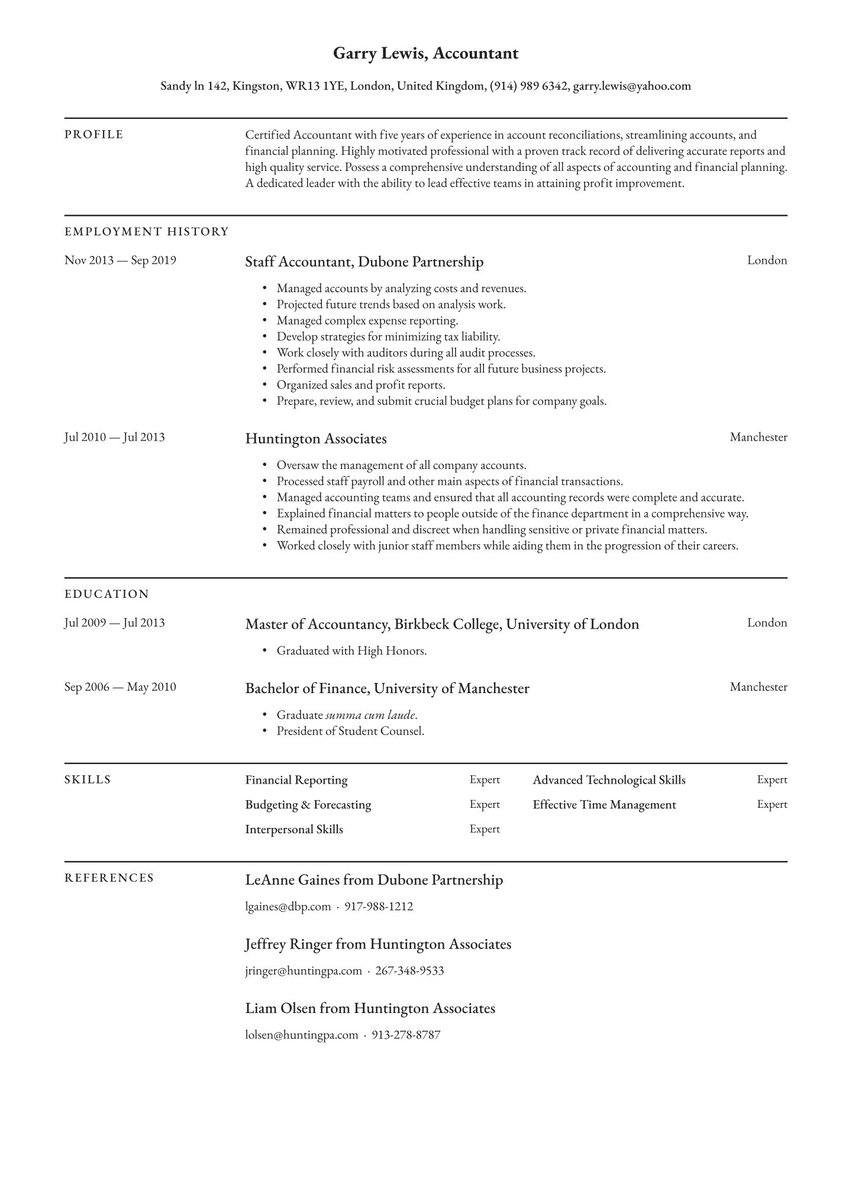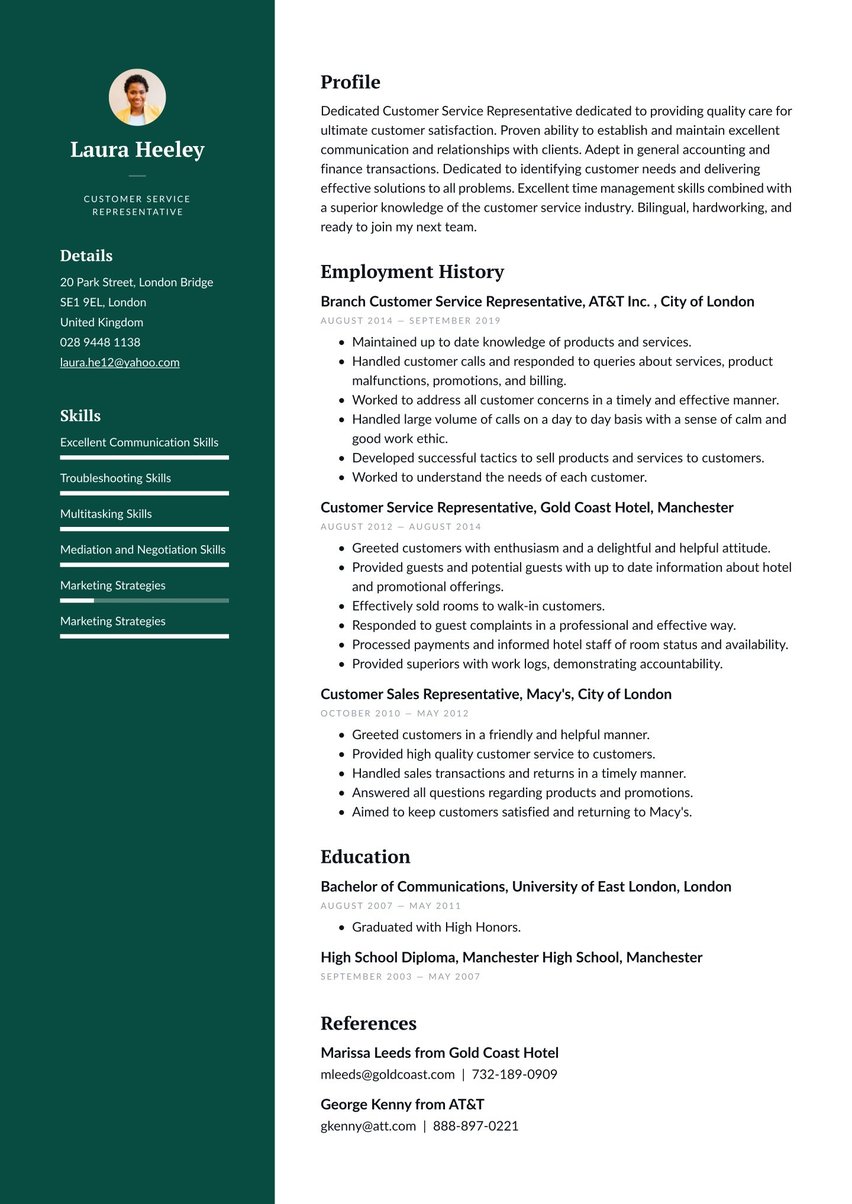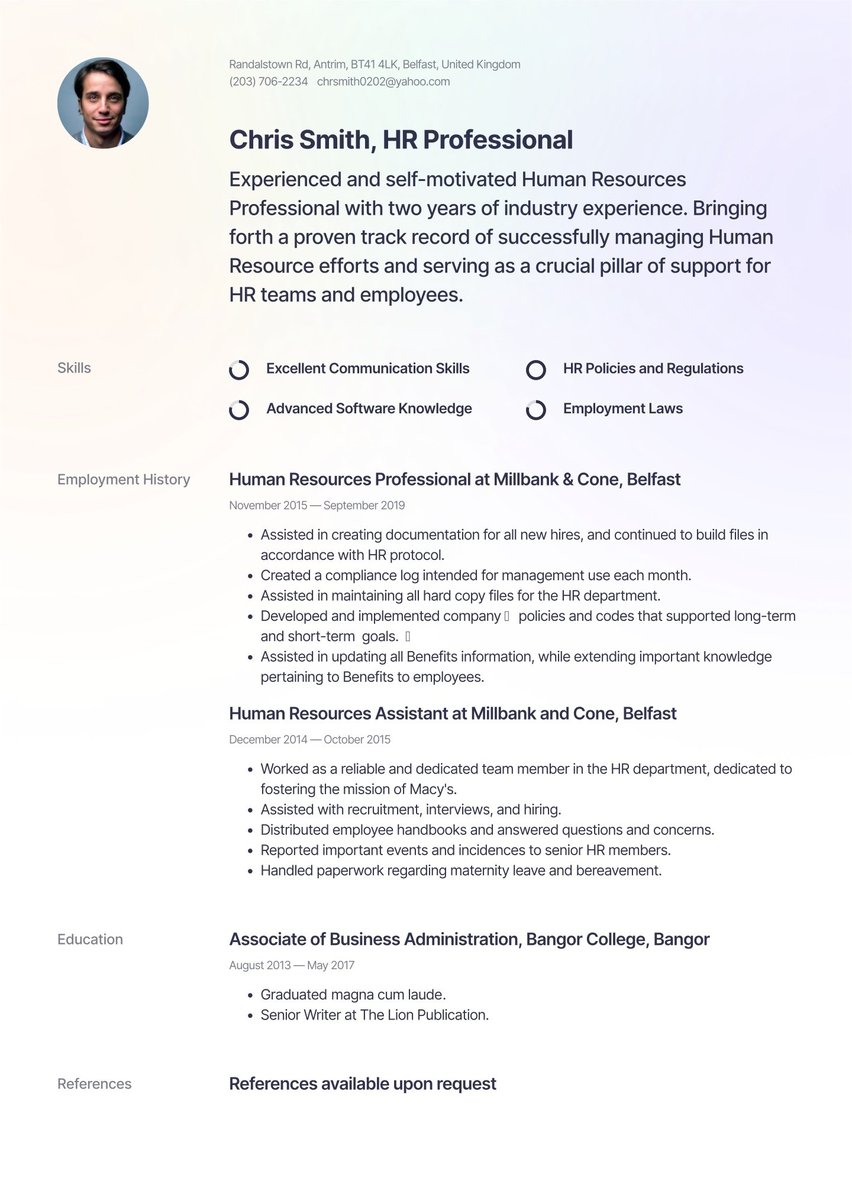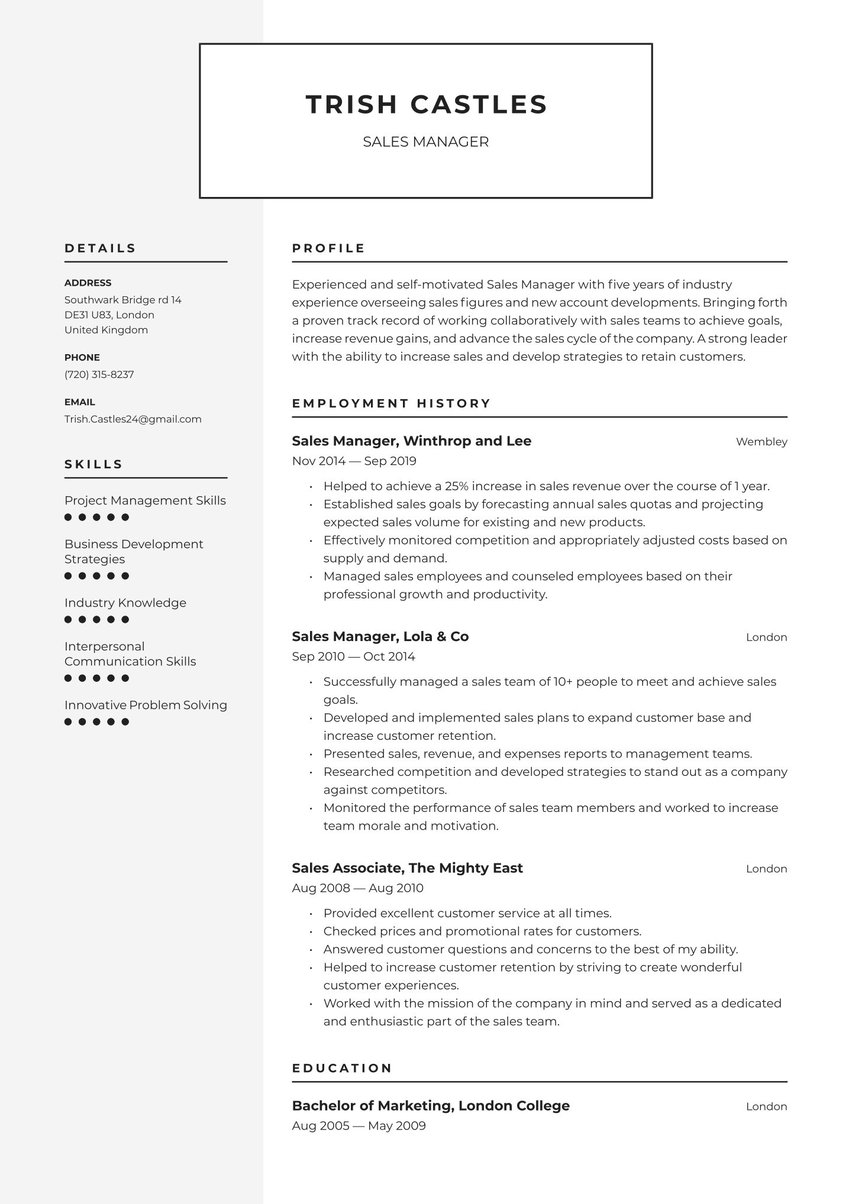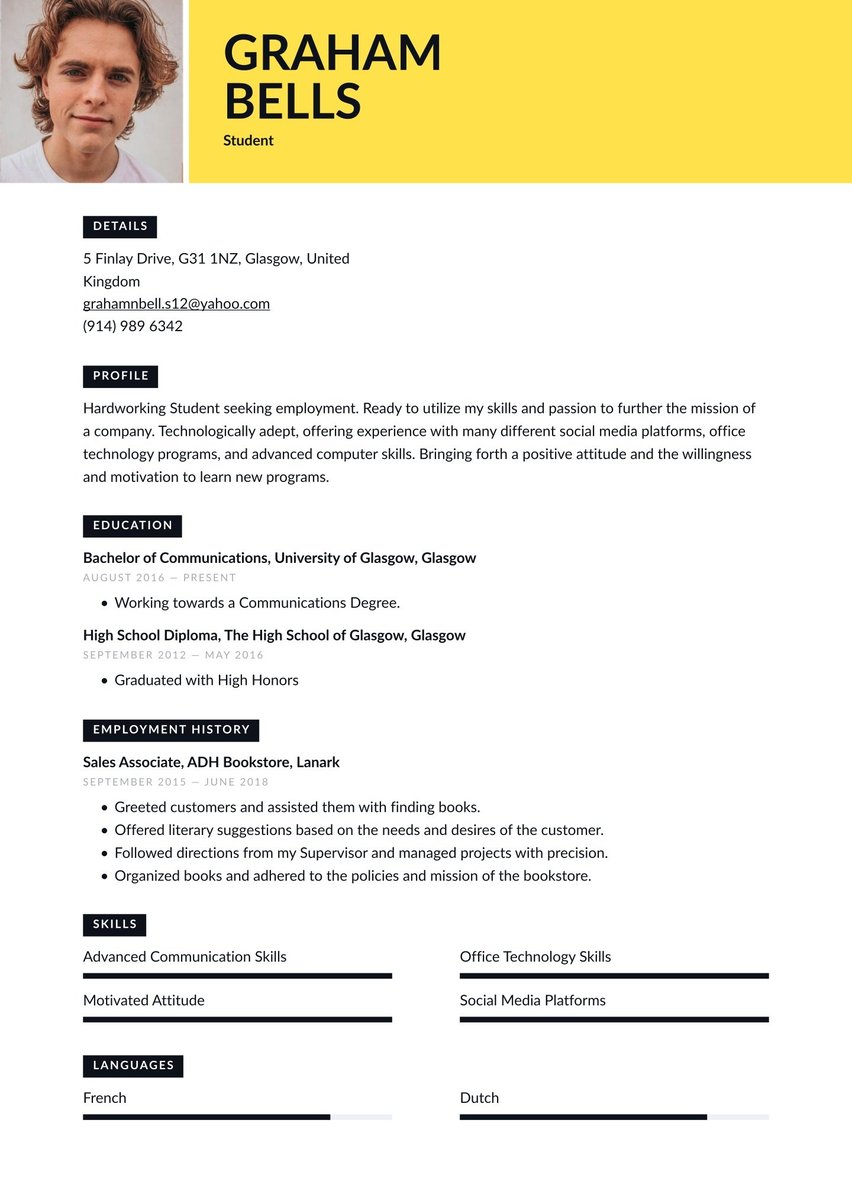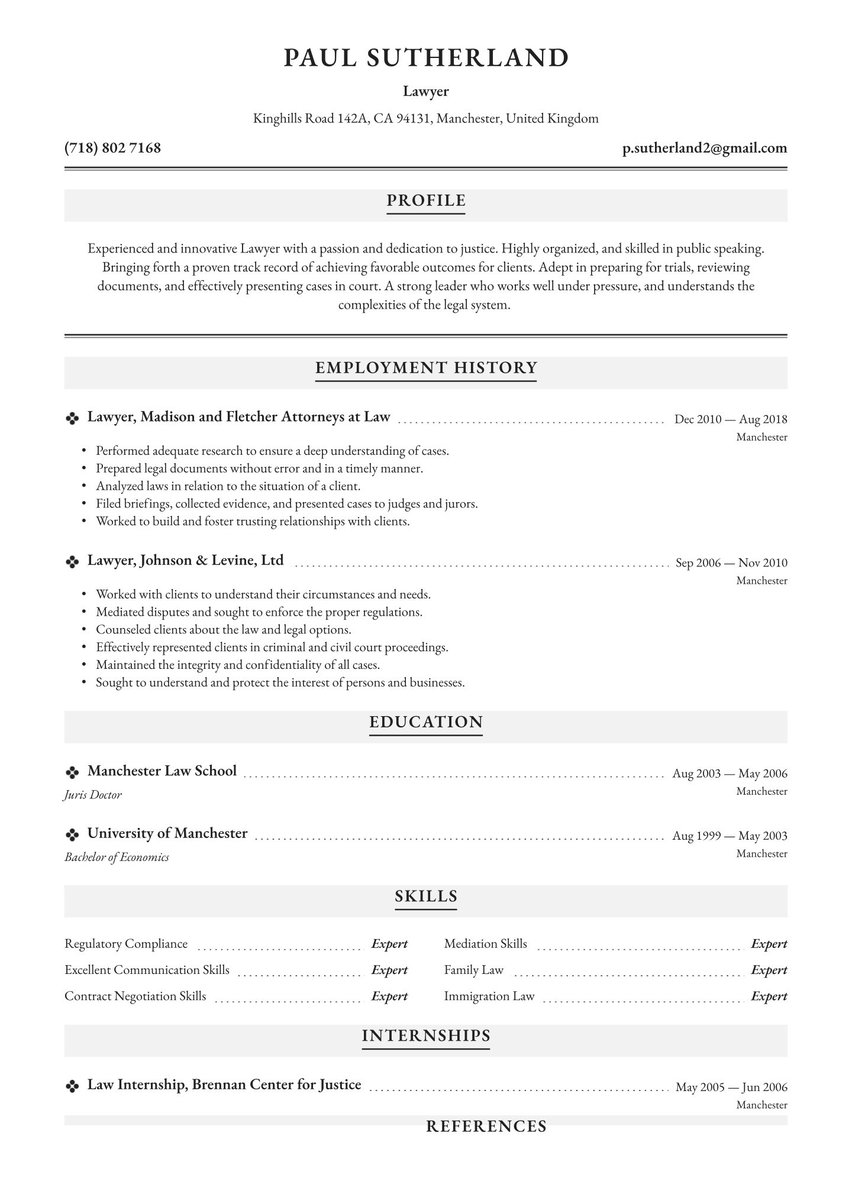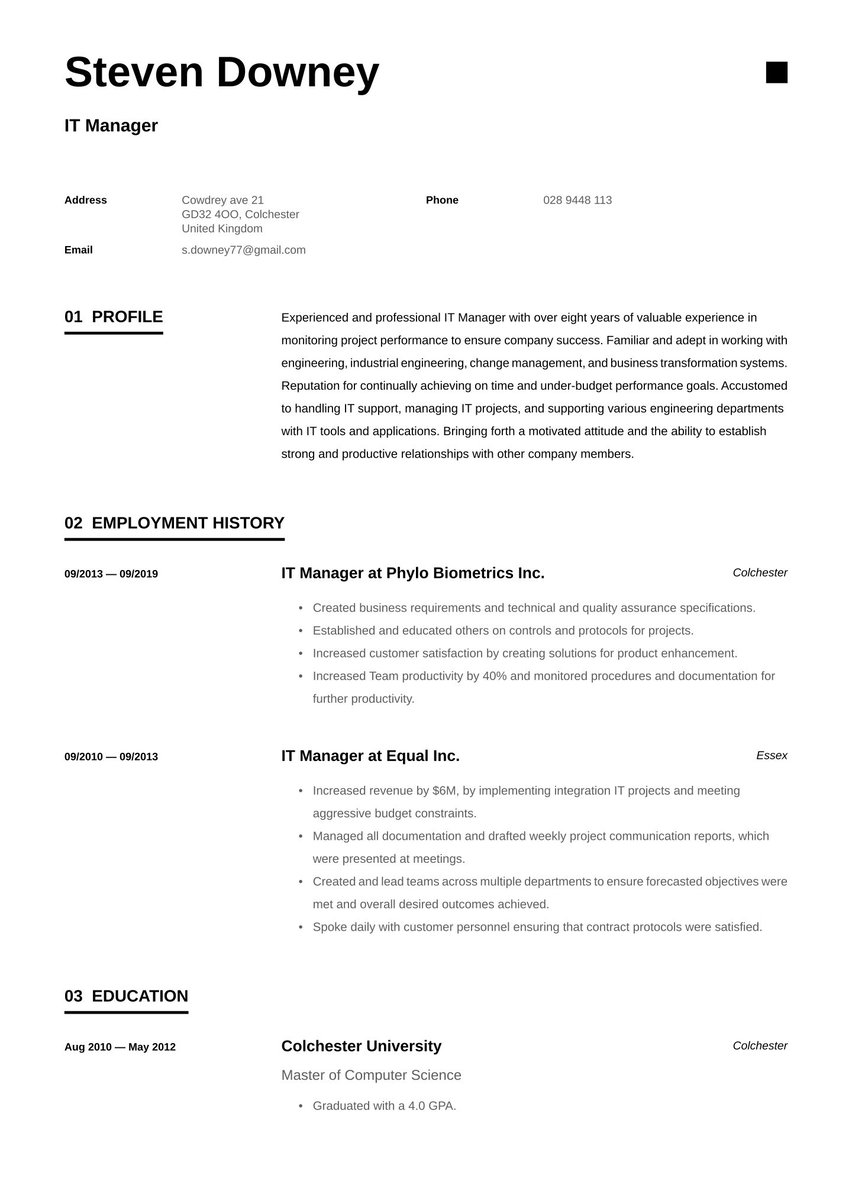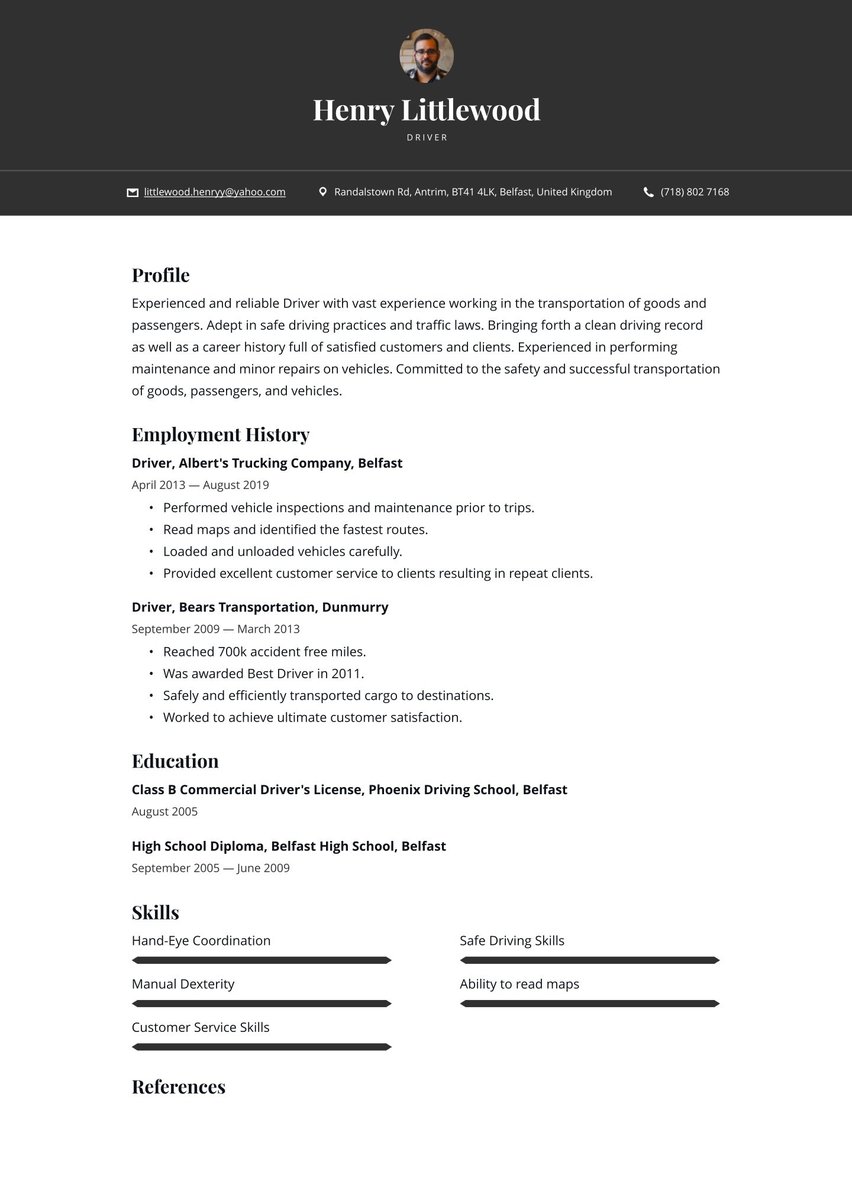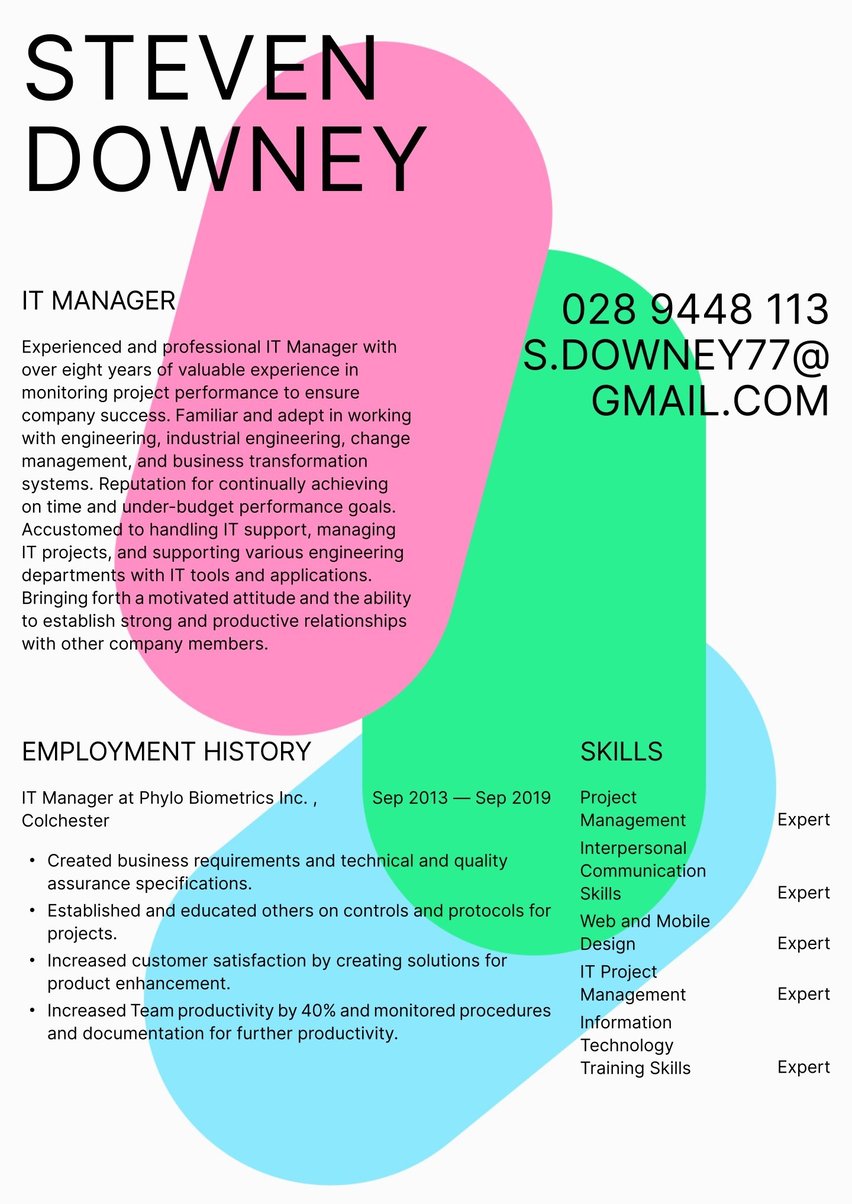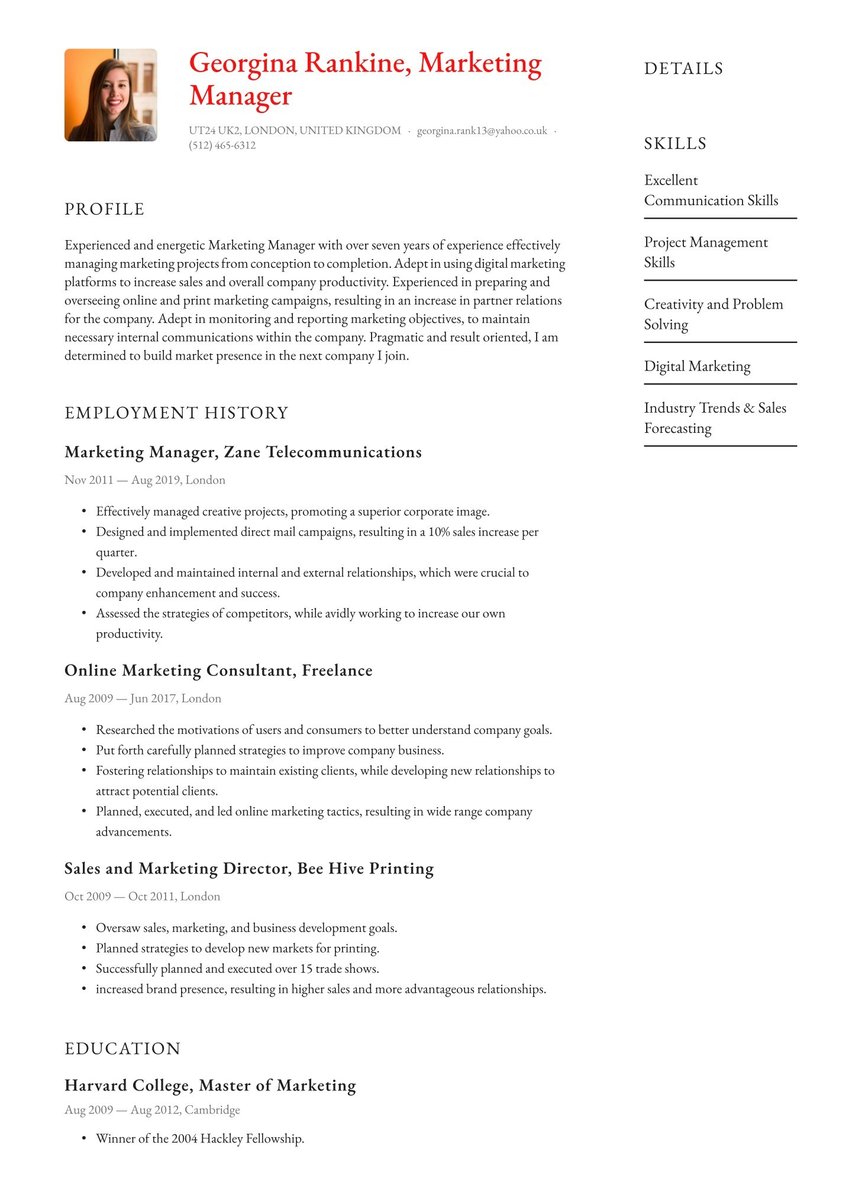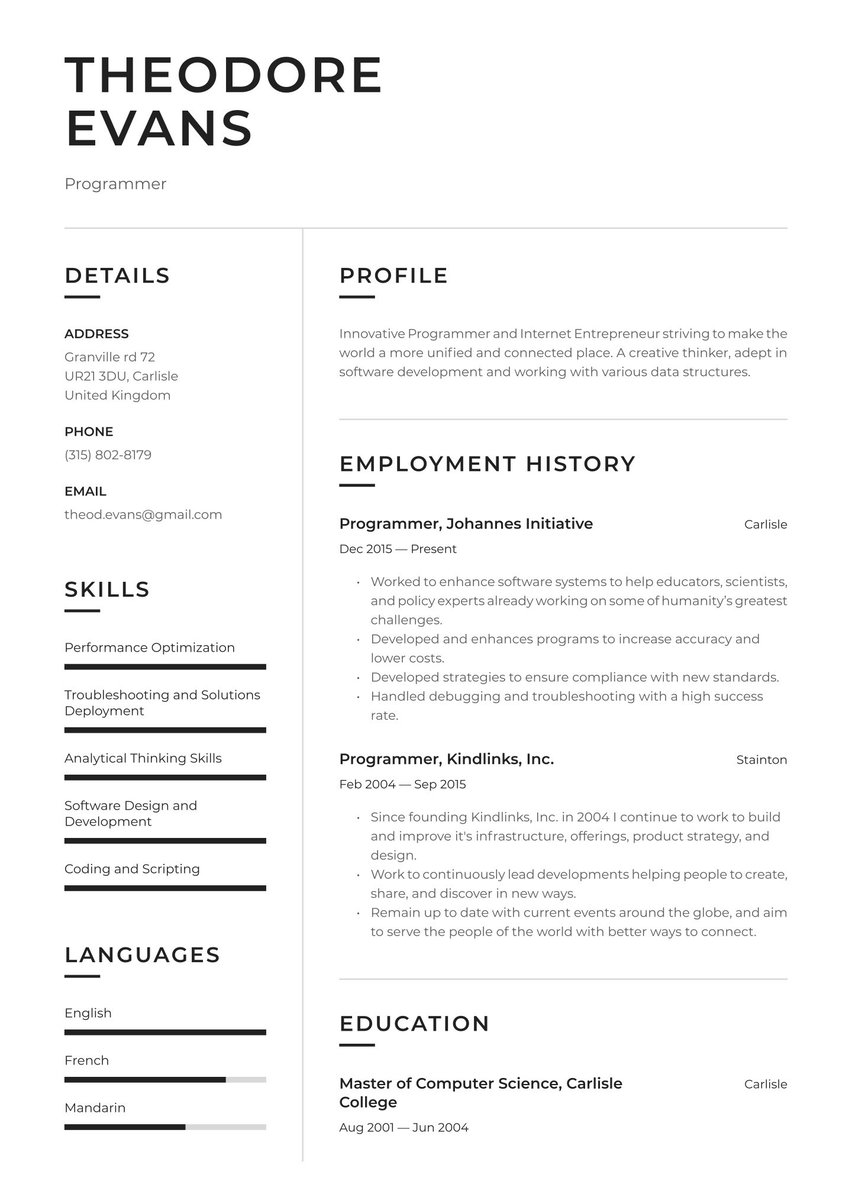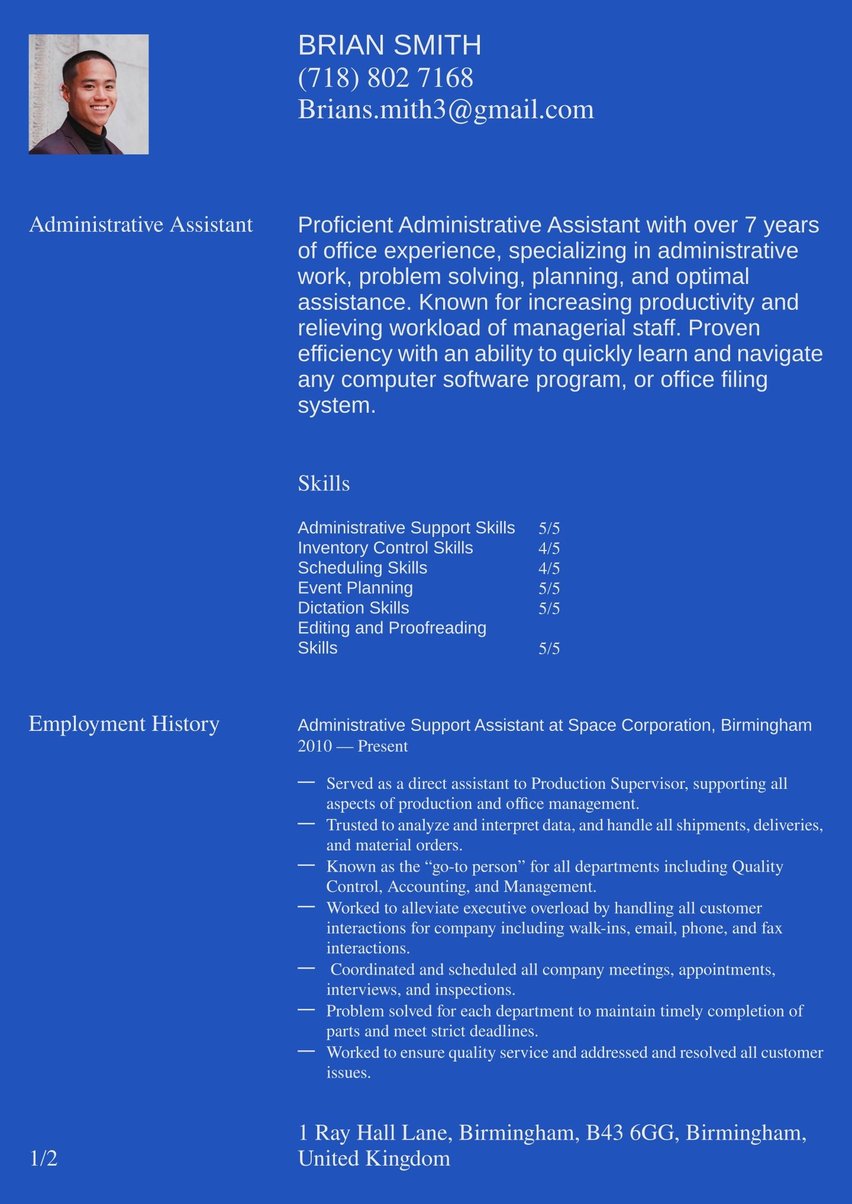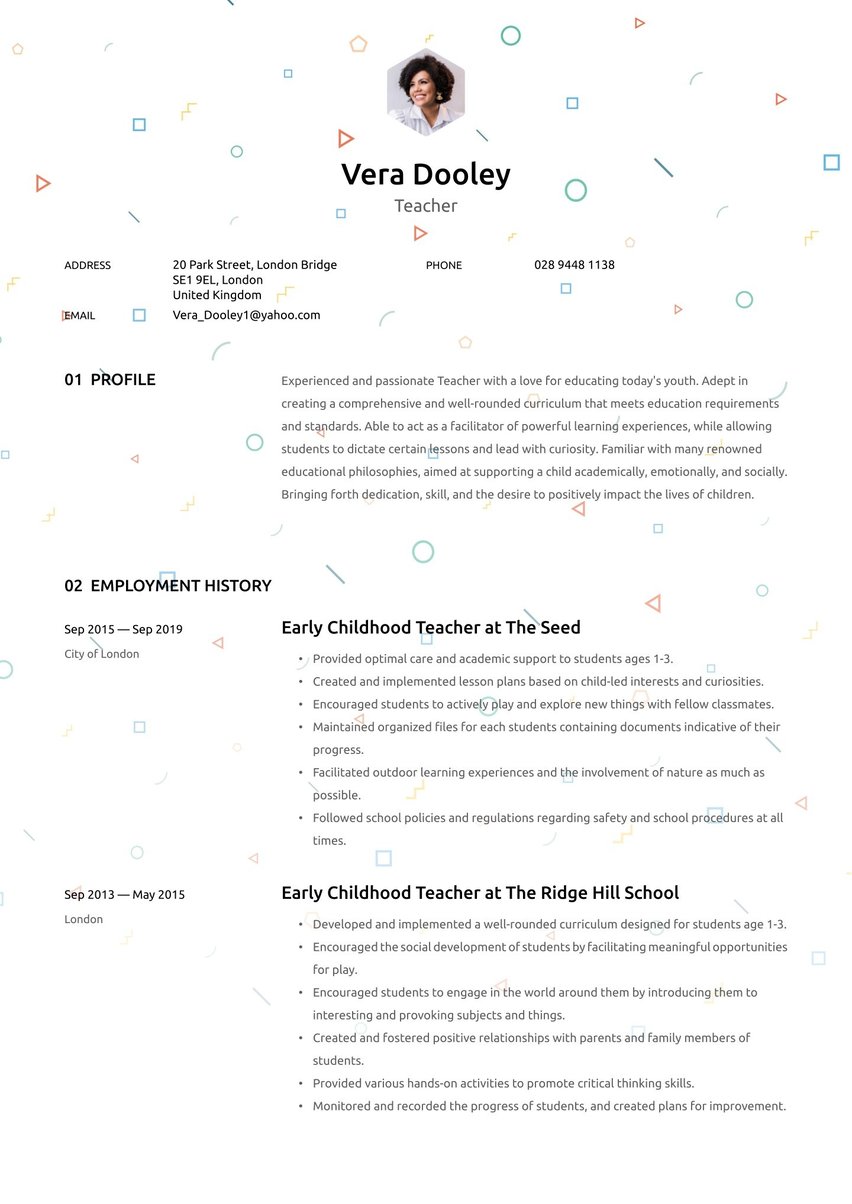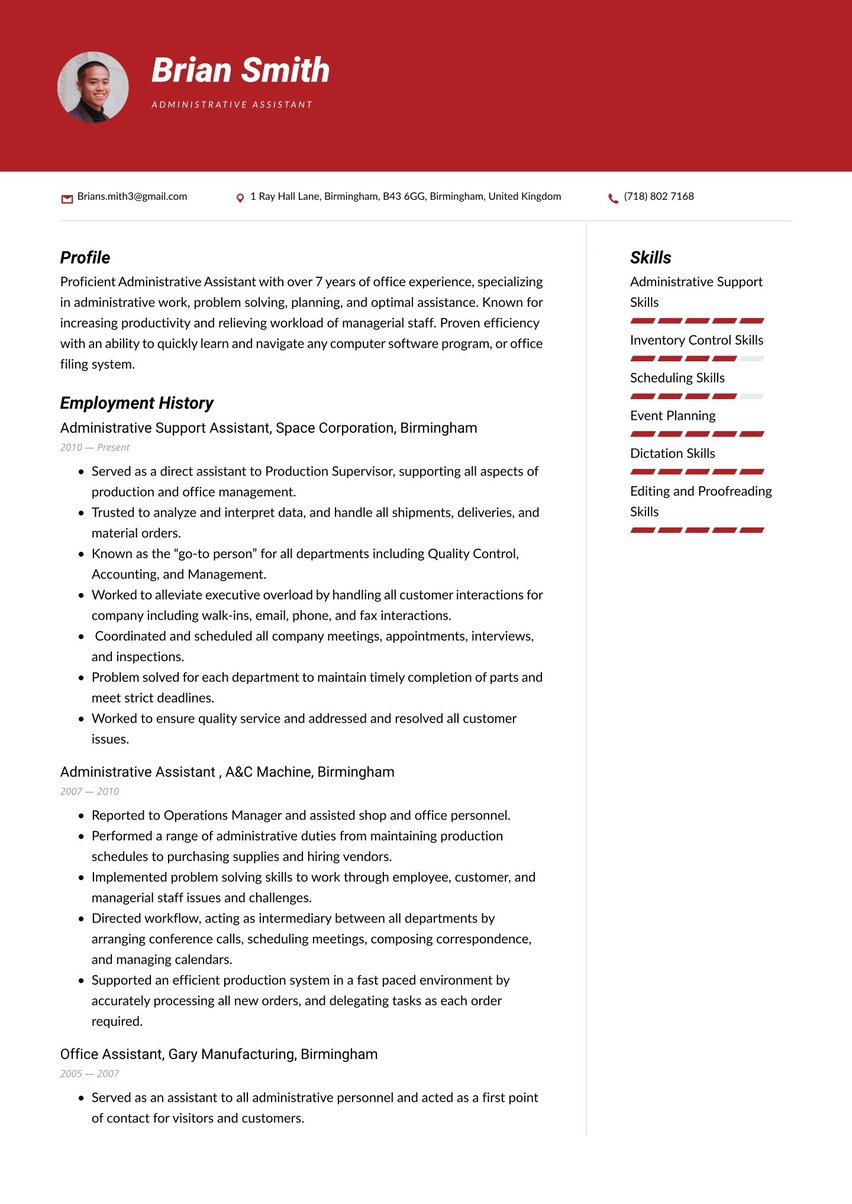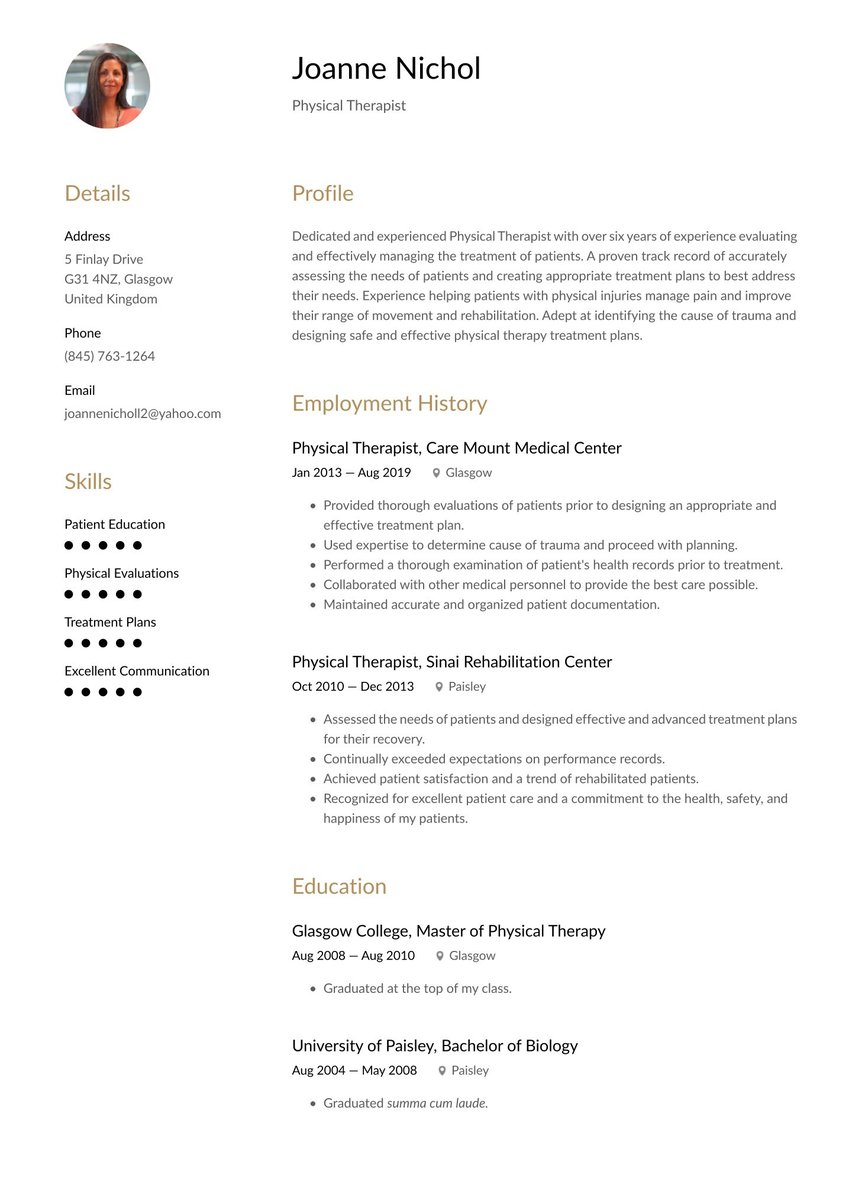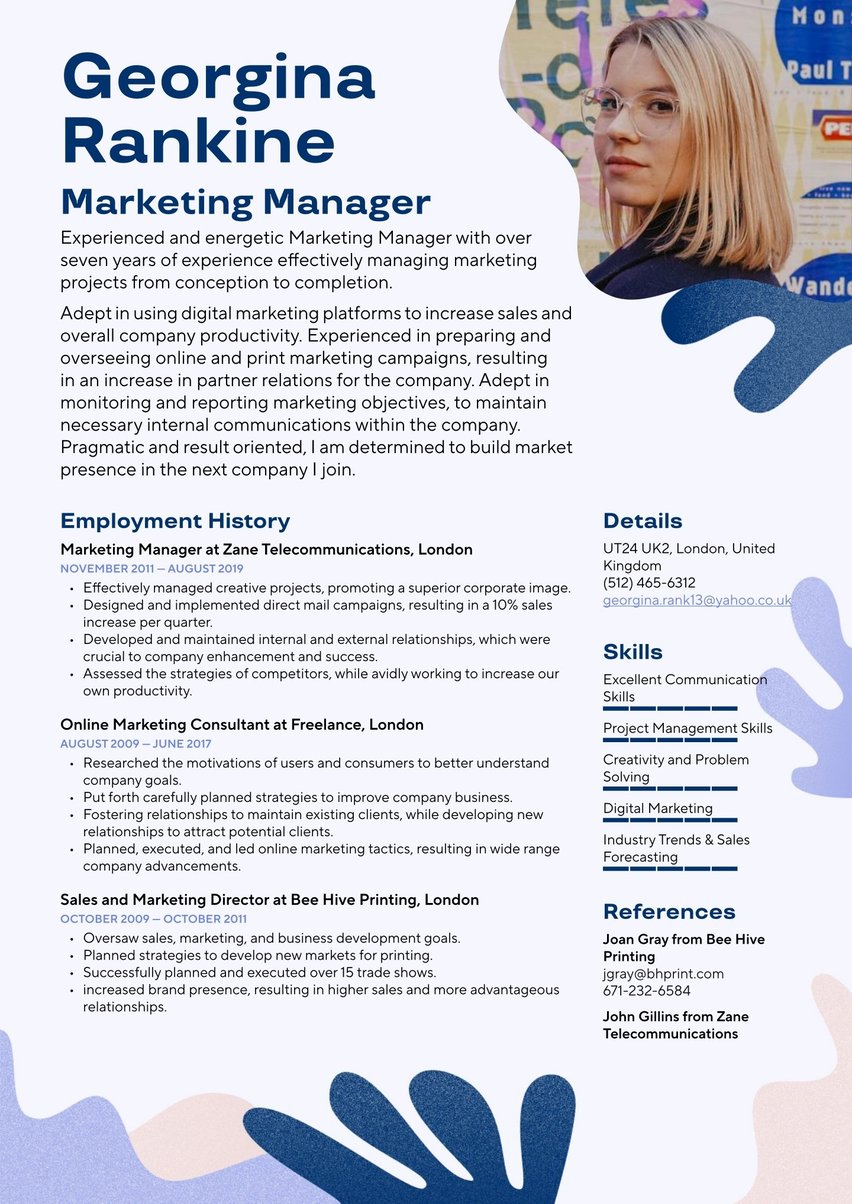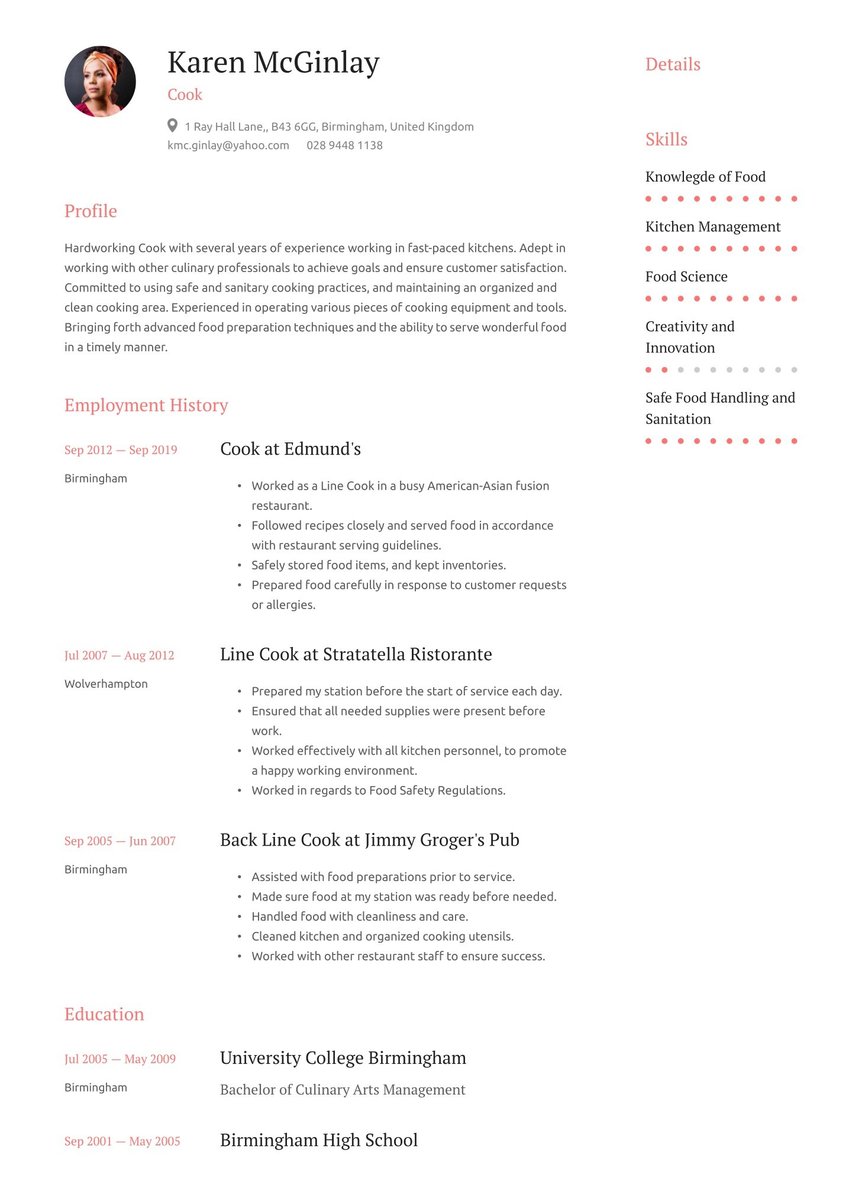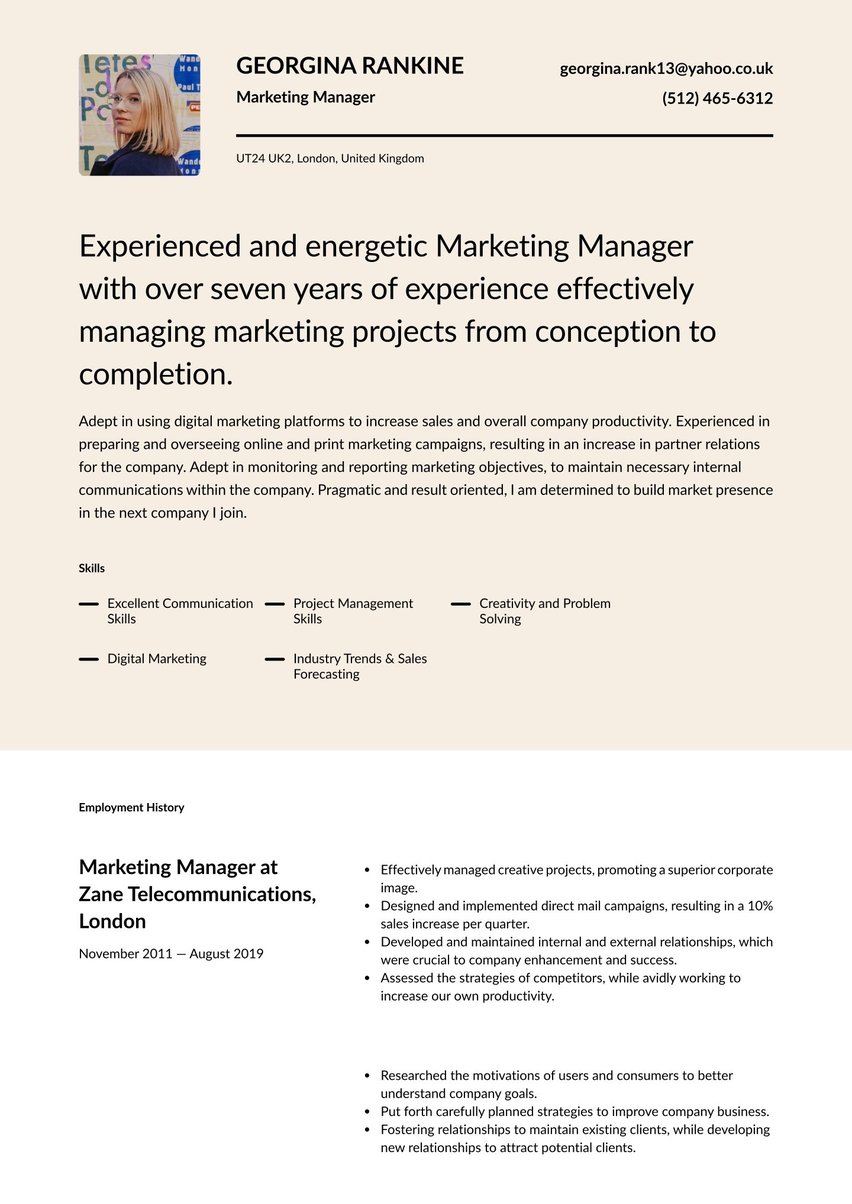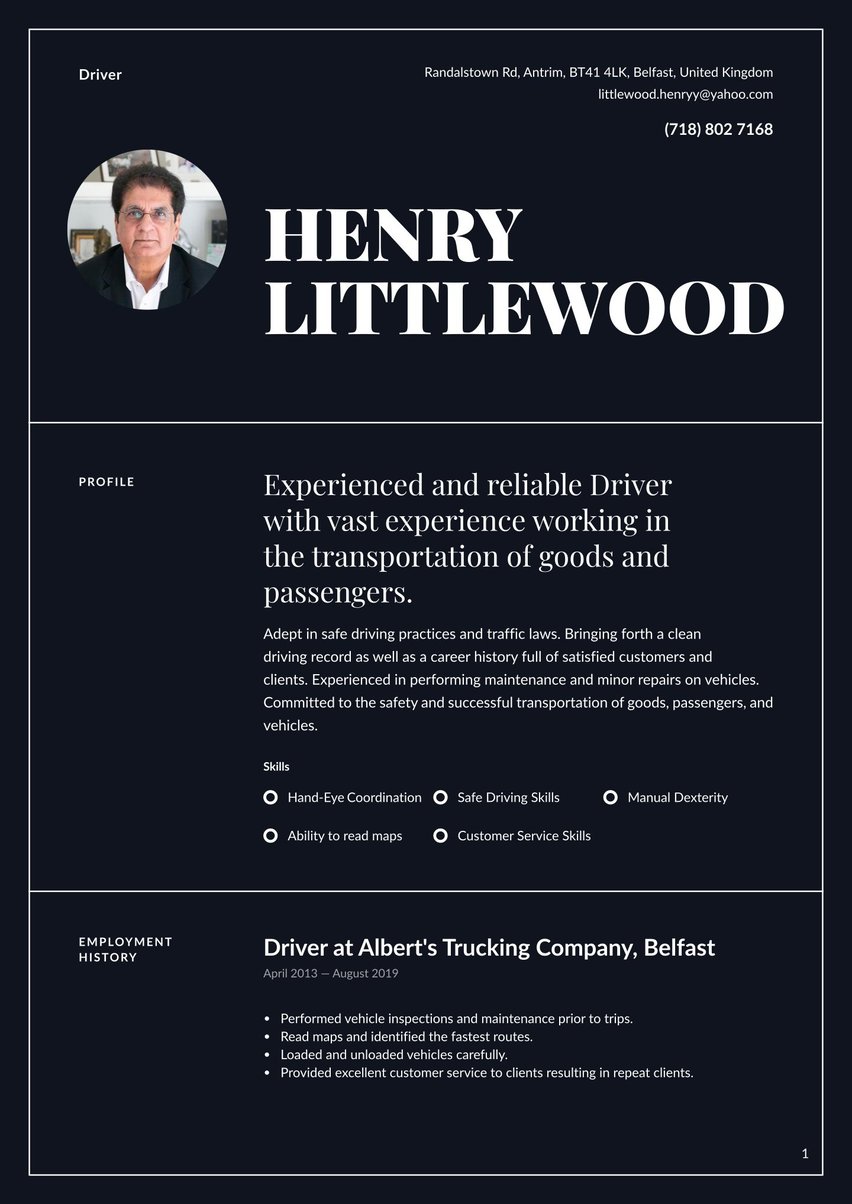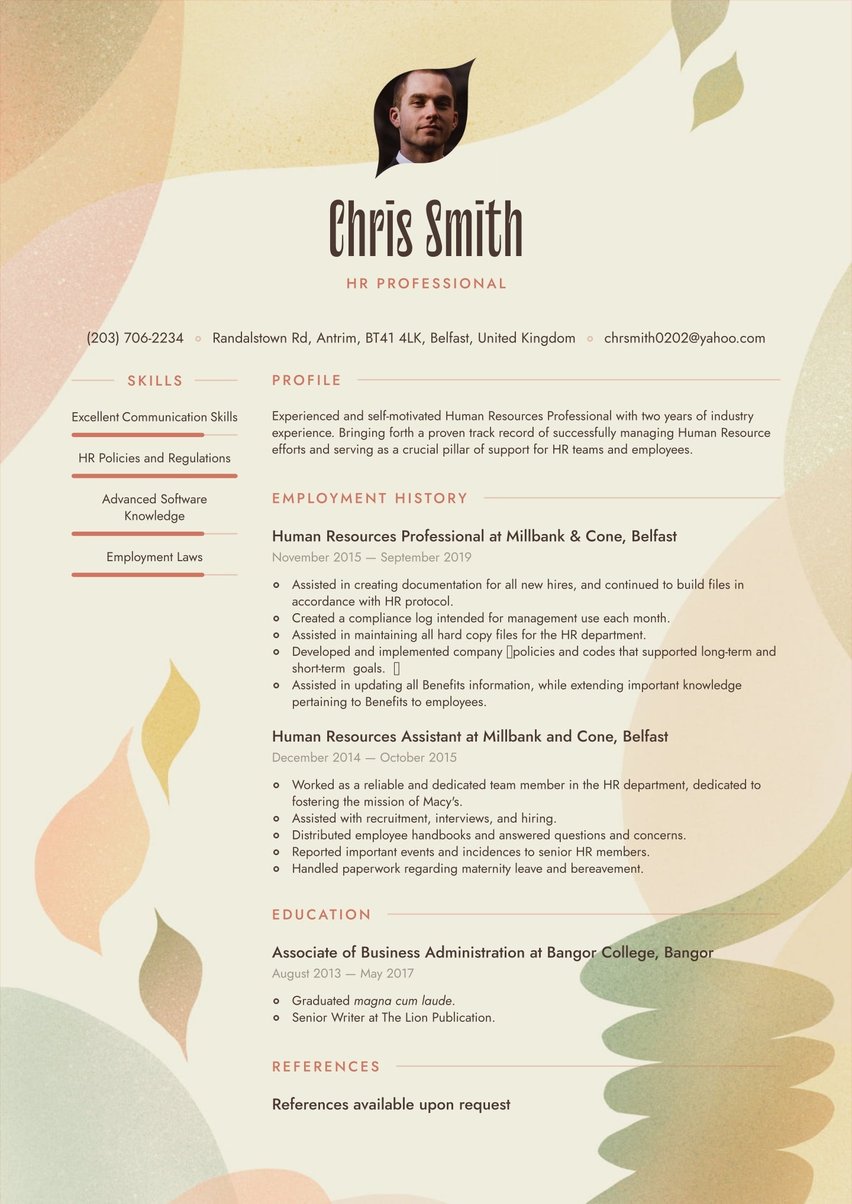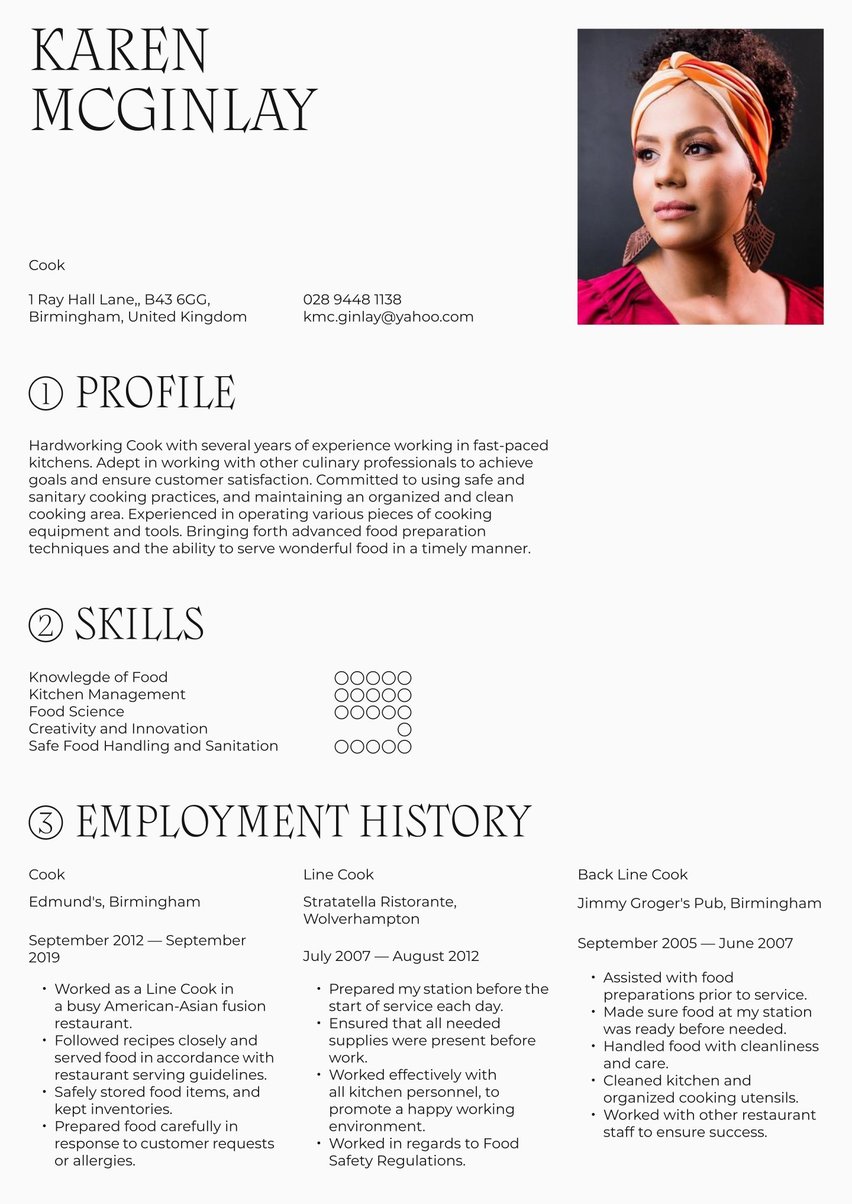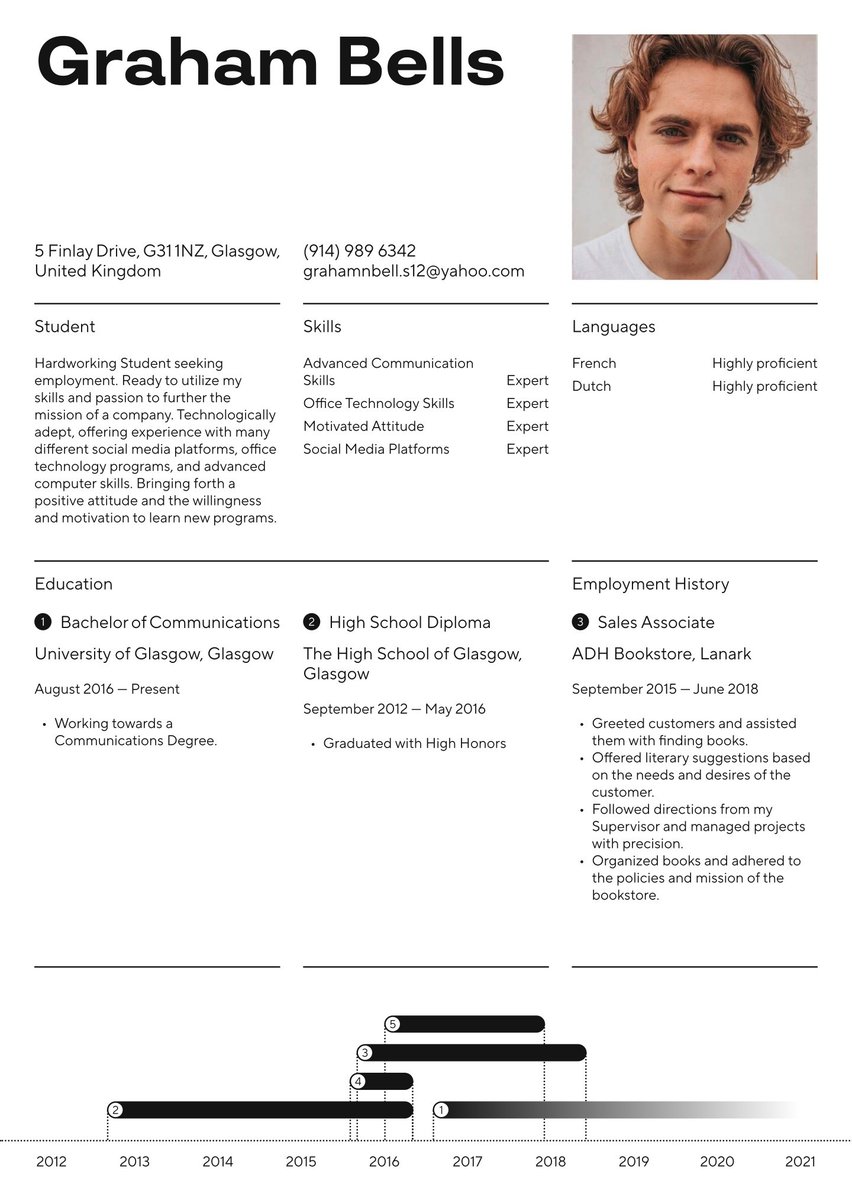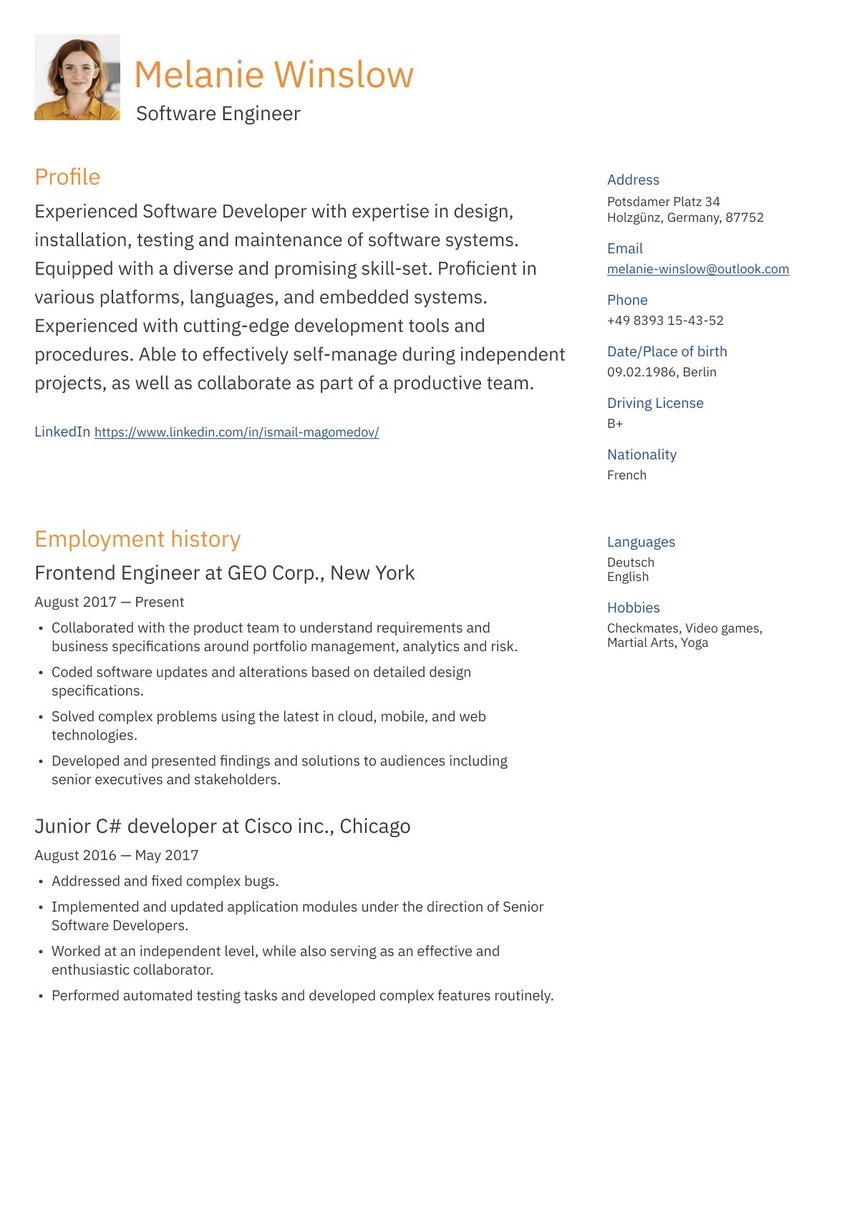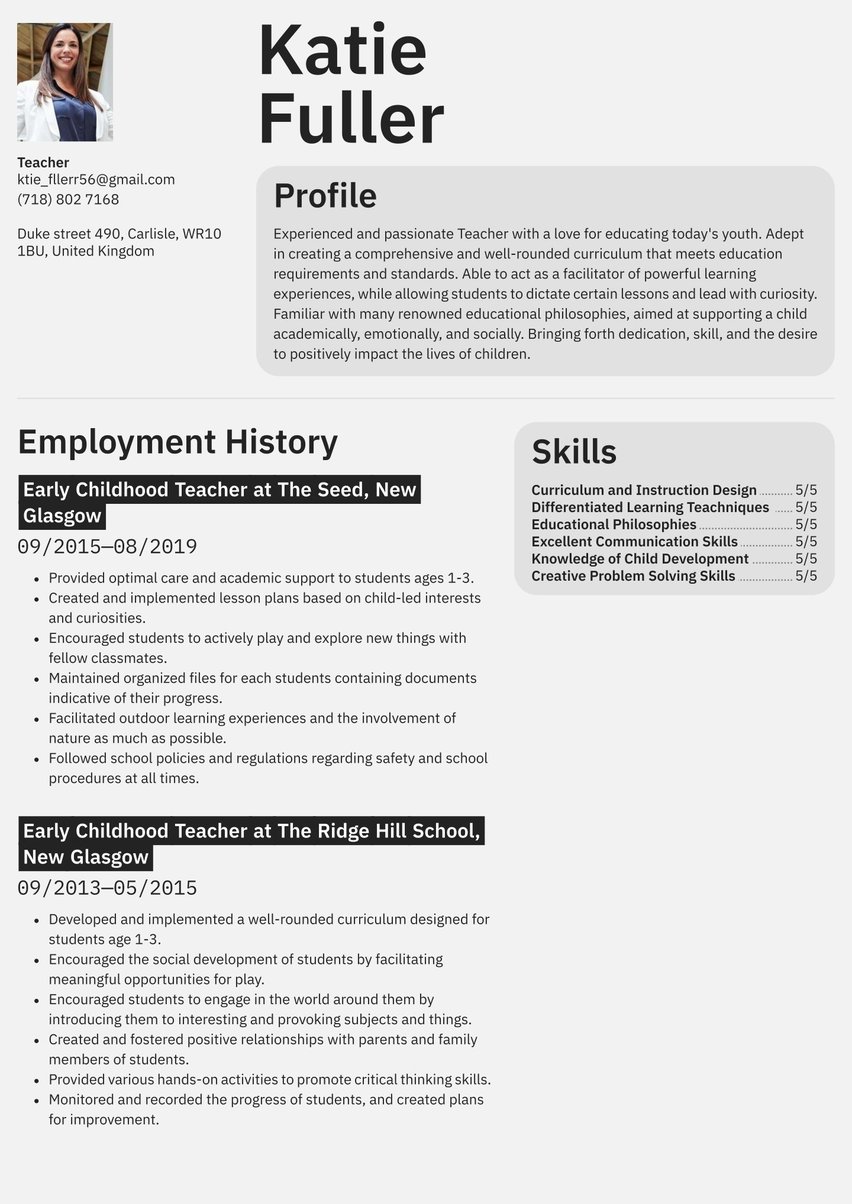Reliable business studies graduate with extensive knowledge of HR topics including employee retention and resolution. Looking to secure an internship with J&D Retailers that will help in the development of current HR skills, as well as learning new skills to help support your business.
02/2022 - present, Retail Assistant, Walls and Co.,
- Dealing with customers in a friendly professional manner.
- Ensuring products are replenished as required and that general housekeeping is maintained.
- Resolving customer queries and complaints quickly and professionally.
- Handled register transactions ensuring accuracy and swiftness in serving customers.
09/2021 - 08/2022, MSc Management with Human Resources, University of Liverpool,
- Coursework included managing employee relations, recruitment and retention, and organisational design and development.
08/2018 - 05/2021, BSc Management, University of Manchester,
- Customer Service
- Communication
- Complex Problem Solving
- Highly Motivated
- Fast Learner
- Teamwork
- Interpersonal Skills
Internships are a great way to get hands-on experience in your field of study. As they become more popular in all sectors, internships can vary from short stints of a week or so, to a year’s worth of paid employment.
Understandably, internships are often in high demand, making it even more important to get your CV just right. You need to make a great first impression quickly and show the hiring manager the qualities that make you an exceptional candidate.
CV guide for an internship CV
Luckily, Resume.io is here to help with many CV examples and writing guides for every occupation and career level. Check out our CV builder to get started now.
Here’s what we’ll cover in this internship CV example and writing guide:
- How to write an internship CV
- Choosing the right CV format for interns
- How to add your contact information
- Using summaries like a pro
- Adding your work experience
- Listing education and relevant experience
- Picking the right CV design/layout
- What the internship market looks like, and what salary you can expect.
What does an intern do?
An intern is an entry-level employee who works within an organisation for a set period, often on a part-time basis. Most interns will be students looking to gain experience in their chosen field. An intern will usually help out in ways that will give them exposure to the industry. For instance, an engineering intern may act as an assistant to an engineer.
How to write an internship CV
It is important to follow a defined structure when writing your internship CV. The main sections of your CV are:
- CV header
- CV summary (aka profile or personal statement)
- Employment history section
- CV skills section
- Education section
Every CV you write should be tailored in some way to suit the internship and the organisation you are applying to. These can be small tweaks, but they are vital.
You can follow these guidelines to help keep you on track when writing your internship CV:
- Know your audience. Make sure you understand as much as possible about the role and company you are applying to, then you can tailor your CV to suit.
- Tweak your CV. Make small changes where necessary to suit the role you are applying for.
- Use the right language. Ensure that the language you use fits the role and company.
Optimise your CV with keywords!
When you're applying for an internship, it's important that your CV gets past the Applicant Tracking System (ATS). The software reviews incoming applications to see how well each of them fits the criteria of the job.
One of the ways it does that is by scanning for specific keywords. Much of the time, you can find these keywords in the job advert. Review the posting and highlight any job-specific words. Using these in your intern CV may be the key to your success.
Choosing the right CV format for internships
Reverse chronological order is the best way to approach the format of your internship CV. Employment history usually comes before the education section, but in the case of an internship, it may be more appropriate to put education first, unless you have some relevant experience.
Reverse chronological is the format preferred by hiring managers and Applicant Tracking Systems or ATS, the software most likely to scan your CV. However, if you don’t have any previous experience to show, you may consider alternative formats.
If you need some extra help along the way, take a look at our tried and tested CV templates. We recommend using the modern or professional style to land your next internship.
Include your contact information
Next up, you need to create your CV header. This is where you include your basic contact details. If the employer is wowed by your application, they will want to reach out fast. Make sure that you include the following details:
- Full name & title. List your first and surname plus something like "summer internship".
- Professional email address. Make sure that your email address is clean and suitable for a professional environment.
- Phone number. Include a phone number that you can be reached on.
- Location. You only really need to include your town or city here.
Don’t include:
- Date of birth. The hiring manager does not need to know exactly how old you are.
- Personal details. You don't need to include your passport number, for example.
Daniel Smith
Intern
London, UK
0112 475 2834
dan.smith@email.com
Daniel Smith
Student
33 Cherry Street, London, Hackney, E8 1LL, UK
0112 475 2834
dantheman@email.com
Make use of a summary
The summary, or profile, is where you introduce yourself to the hiring manager. It should give them some key information relevant to your experience and give them a reason to want to take you to the next stage of the process.
Choose your words with care!
Want to take your internship CV to the next level? Including action verbs in the summary section could help. This approach will catch the reader's attention and show them that you are a "do-er" rather than just a "talker".
Any relevant industry experience should be stated here, which should also be quantified where possible. As an intern, you may not have experience, so you might want to focus on university coursework or student jobs.
The summary must quickly get to the point. The hiring manager should instantly be able to understand what your key experience and skills are.
For even more CV-writing inspiration, check out some related CV samples including our:
You can find an adaptable internship CV examples summary below:
Responsible and reliable secondary school student looking for work experience with a local radio station. Passionate about the media industry in pursuit of future career. Excellent listener and communicator with an eagerness to lean new skills.
Hard-working A-Level student studying business, media, and maths. Looking to secure a two-month placement with Purple Accountancy to expand on existing business and financing knowledge. Confident in writing analytical reports, using Excel, and general admin tasks to support the team.
Reliable business studies graduate with extensive knowledge of HR topics including employee retention and resolution. Looking to secure an internship with J&D Retailers that will help in the development of current HR skills, as well as learning new skills to help support your business.
Outline your work experience
This section can be quite tricky for interns. How do you write about your employment if you don’t have any? Good question.
Interns often have some experience, but this may not seem relevant. Here are some of the elements that you may choose to include in this section:
- School or university projects. Have you worked as part of a team during your schooling? If you collaborated on a project during your GCSEs, A-Levels, or degree (and it's relevant), now is the time to shout about it.
- Part-time jobs. If you have an after-school job, chances are that you've picked up a range of transferrable skills. For example, if you work as a barista, you will have excellent time management, customer service, and communication skills. Focus on this in your work experience section and highlight any crossover you find.
- Teams and clubs. Whether it's a sports team (such as football or netball) or a club (such as a university society), this experience may be relevant. Try to focus on what role you play and what essential skills you have picked up as a result.
- Voluntary experience. This could include volunteering with the elderly, working at a bake sale, or even helping out at a charity shop. Once again, consider the important competencies you have honed within this role.
You can find an employment history CV sample below for an internship role, that you may adapt to suit.
Retail Assistant at Walls and Co.
February 2022 - Present
- Dealing with customers in a friendly professional manner.
- Ensuring products are replenished as required and that general housekeeping is maintained.
- Resolving customer queries and complaints quickly and professionally.
- Handled register transactions ensuring accuracy and swiftness in serving customers.
How to write an intern CV with no experience
As we have covered in the section above, you may not have any prior work experience to speak of. Many interns don't! However, you should not let that hold you back. This role is about learning the tricks of the trade so that you can land a full-time job at some point.
So, what should your no experience CV include? First up, focus on the types of experience we have covered in the above section. You should also highlight the following:
- Industry knowledge. Why do you want a career in this given industry? What do you already know about the field, and what do you hope to learn from the experience?
- Passion. Interns should be passionate about the sector they are exploring. Try to show the hiring manager that you have real energy for this position.
- Transferrable skills. When it comes to listing the experience from the above section, pick out the transferrable skills you have. Consider the skills that you will need for the internship and whether you already have them in the bag.
Include the relevant key skills that make you a great intern
If your previous experience is at a minimum, the skills section will become one of the key players on your CV, so pay careful attention to it.
You need to include a healthy picture of both hard skills and soft skills. Consider the essential skills from the job spec and make sure these are incorporated into your CV. For example, interpersonal, problem solving, and computer skills.
If you have skills that are key to the industry, this should also be incorporated onto your internship CV. Don’t overlook soft skills either. These are qualities like time management or communication that make you suited for the type of work — even if this is your first time doing it.
Check out the skills section from our internship CV example, which can be adapted to suit your needs.
- Customer Service
- Communication
- Complex Problem Solving
- Highly Motivated
- Fast Learner
- Teamwork
- Interpersonal Skills
Detail your education & relevant certifications
Since internships are usually a student’s first work experience, you can list Education beneath your summary. However, if you do have some relevant positions to show, feel free to switch this section with the employment history one.
Start with your most recent education, which will also be the most relevant. Include any examples of modules/presentations, etc. that are directly relevant to the internship. Here are some of the examples of what you might include:
- GCSEs. Include the subjects and your results (9-1) in each case.
- A Levels. The same goes here. Include your grades (A*-E).
- College qualifications. You may not have completed A Levels but a different college-level qualification. These include NVQs, tech levels, T Levels, and national diplomas. Include what you have plus any results.
- Duke of Edinburgh Award. If you have completed this, state whether it was bronze, silver, or gold.
- Degree. Should you already have a degree, you will want to list it. Note you can also list it if it is ongoing but you should state that it is incomplete.
- Additional certificates. Have you done some extra training? You may be Microsoft Certified, have Adobe Suite training, or have other certificates.
Check out the education section from our adaptable CV sample below.
MSc Management with Human Resources, University of Liverpool
September 2021 - August 2022
- Coursework included managing employee relations, recruitment and retention, and organisational design and development.
BSc Management, University of Manchester
August 2018 - May 2021
Pick the right resume layout and design for an intern CV
When writing a CV for an internship, you may be up against some fierce competition. However, this doesn’t mean you need to ‘think outside the box’ when deciding on the most appropriate format to use. For internships, the hiring manager is looking for a clear and concise layout, and they don’t need anything overly complex.
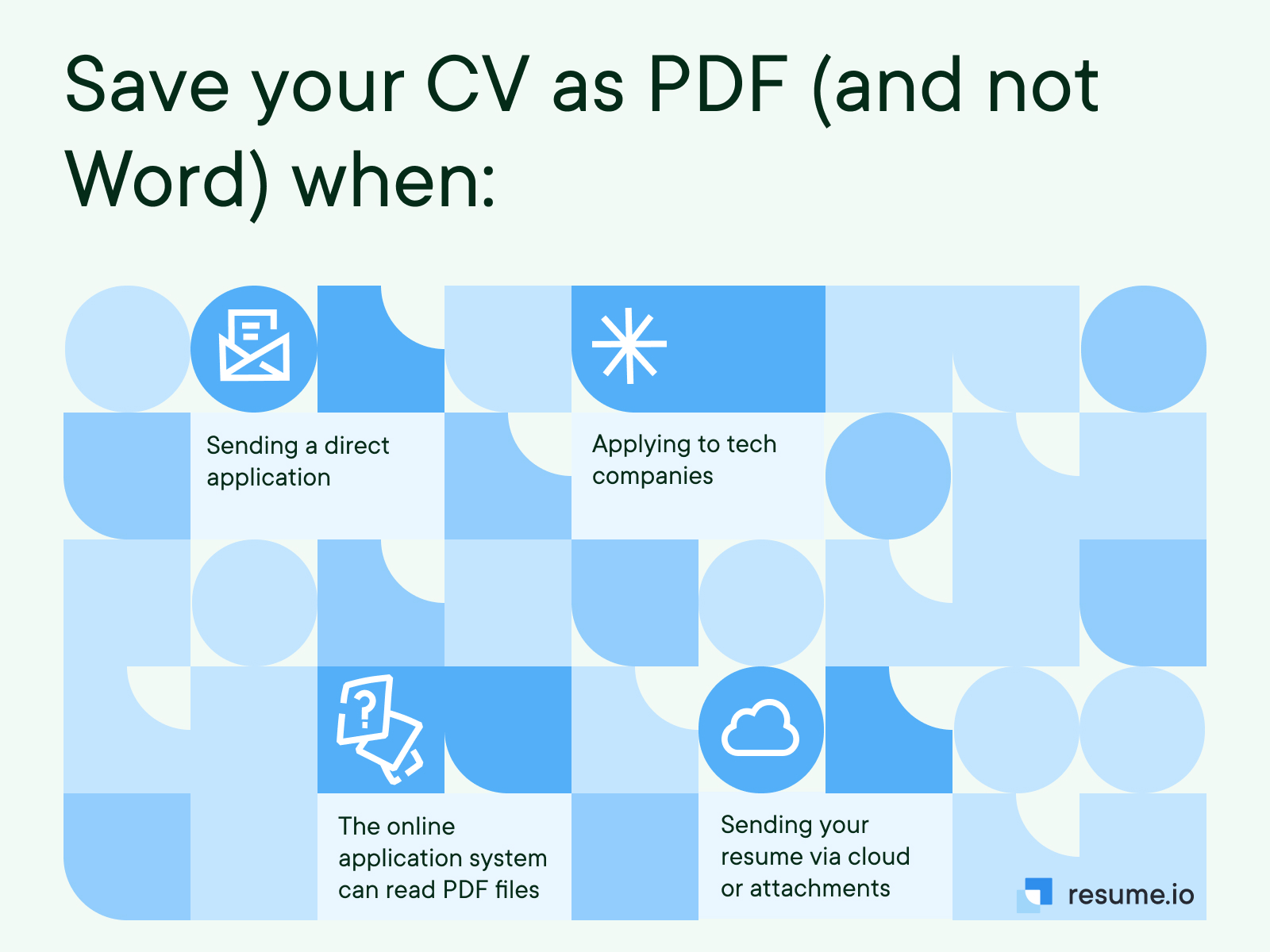
The exception to this rule may be in creative fields or highly-competitive tech ones where visual impression can be the deciding factor.
It’s important to customise the look and feel of your CV for each position that you apply to. This sends the message that you are serious about the role and ready to adapt to the company culture. A CV template can make this process quick and easy.
Internships job market and outlook
Although internships have become more common in a range of different industries, a common concern is the level of experience needed to obtain one.
An analysis of 4 jobs on LinkedIn revealed that 35% of entry-level positions were asking for experience. In short, in many cases, you need to have an internship to get an internship. Increasingly, internships appear not to be for those just entering the workforce.
What type of salary you can expect as an intern
Interns can't expect to make the highest salary. However, if you are classed as a worker, you are entitled to receive the National Minimum Wage. There are exceptions to this rule of which you need to be aware. These include:
- Higher education internships. If your internship is for less than a year and part of your higher education course, you may not qualify for National Minimum Wage.
- Voluntary internships. If your internship is voluntary, you may not get paid for it at all. However, you may find that some benefits are included here.
Key takeaways for an internship CV
When looking for intern opportunities, tailor your CV to each role you are applying for. This may only involve small tweaks, but this is important. You should also always back up any statements with numbers and specific details where possible.
If you lack experience, don't panic. You can switch the sections around where possible. Focus on the sections which will make your CV more attractive and relevant. Get started now by using our CV builder.

